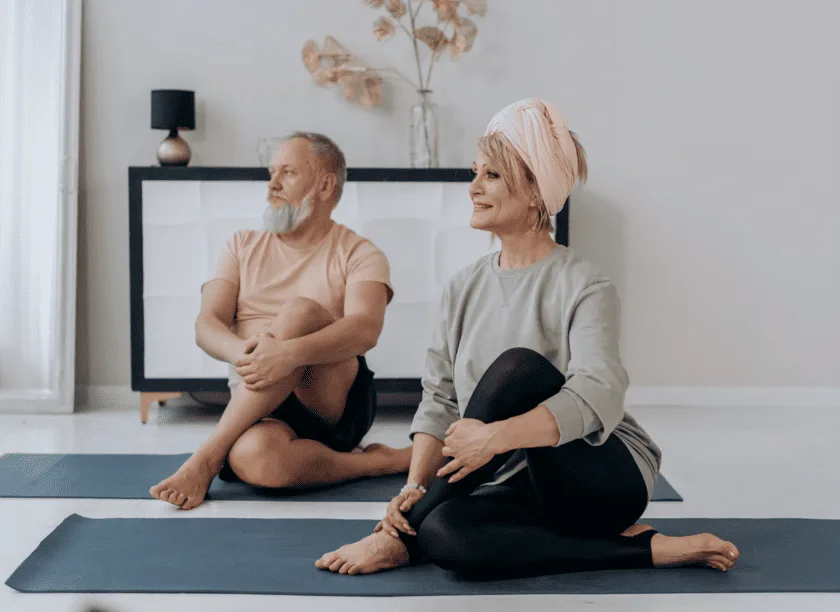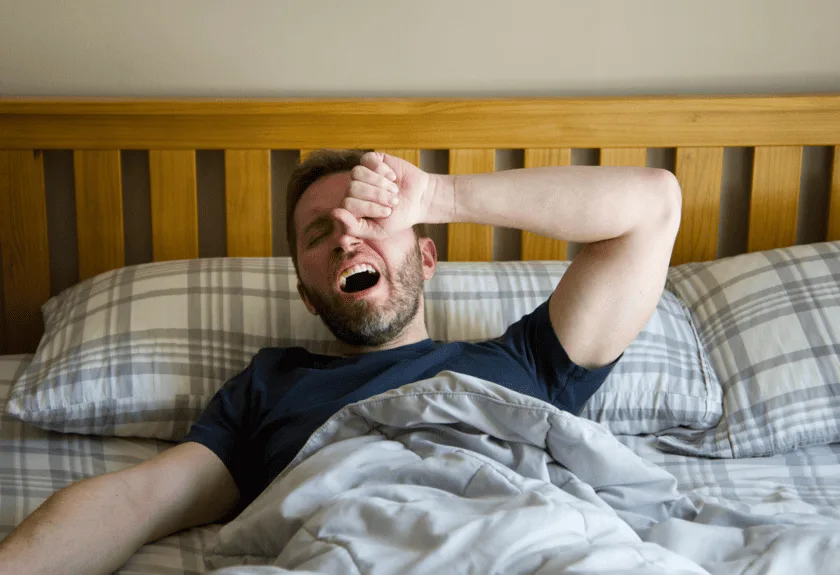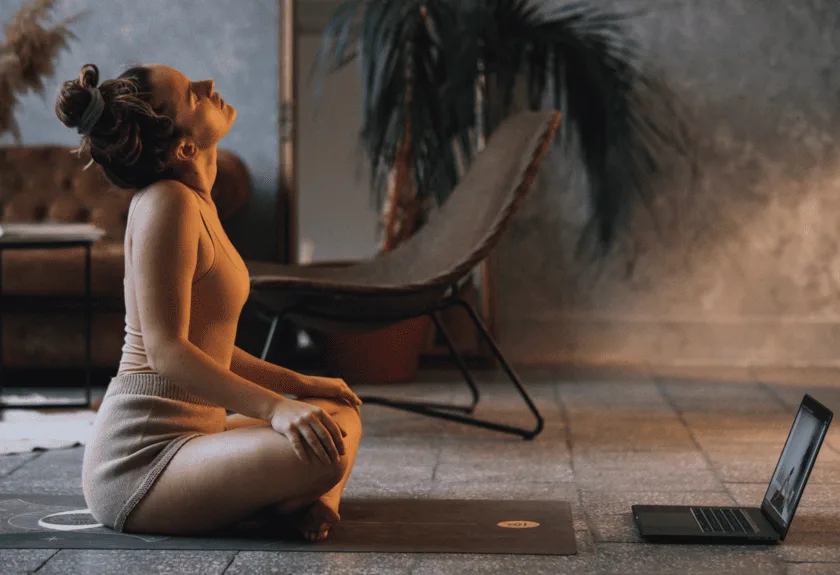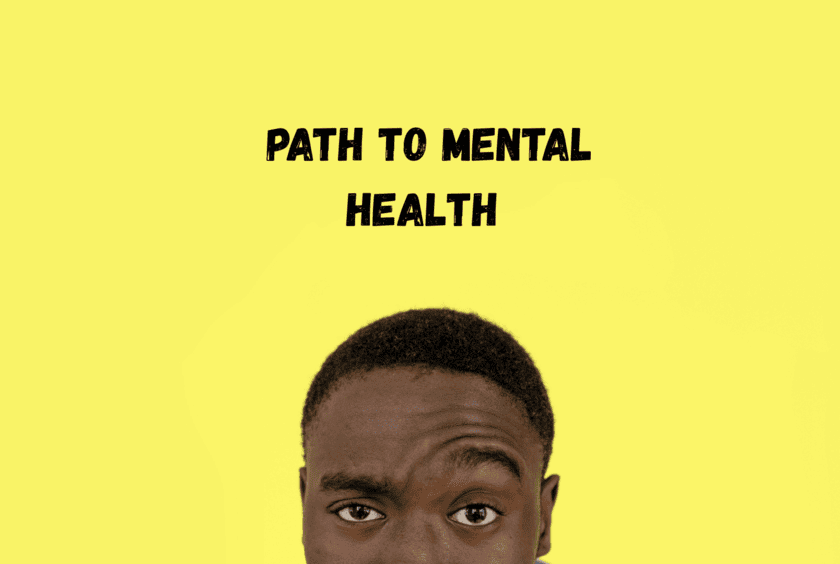Understanding the Connection Between Exercise and Sleep
How Exercise Impacts Your Body and Sleep Cycle
Exercise is a powerful tool that not only shapes your physical health but also deeply influences your sleep patterns. When you engage in physical activity, your body undergoes a series of physiological changes—heart rate increases, muscles are activated, and endorphins are released. These processes help to reduce stress, improve mood, and regulate your internal clock, known as the circadian rhythm. Over time, consistent exercise can lead to more restorative sleep, helping you fall asleep faster and stay asleep longer.
However, the timing and intensity of your workout matter. High-intensity exercises close to bedtime may leave you feeling too energized to wind down, while moderate activities like yoga or walking can promote relaxation. Understanding how your body responds to different types of exercise can help you tailor your routine to support both your fitness and sleep goals.
The Role of Recovery in Fitness and Well-being
Recovery is an essential but often overlooked component of any fitness regimen. When you exercise, your muscles experience small tears that need time to repair and grow stronger. This repair process occurs during rest, particularly while you sleep. Without adequate recovery, you risk fatigue, injury, and diminished performance.
- Sleep quality: Deep sleep stages are when your body produces growth hormone, essential for muscle repair and recovery.
- Mental recovery: Rest helps reset your mind, reducing feelings of stress and mental exhaustion that can accumulate from intense workouts.
- Immune function: Proper rest supports your immune system, helping you stay healthy and consistent with your fitness routine.
Incorporating recovery strategies—such as stretching, hydration, and prioritizing sleep—can enhance your overall well-being and ensure that your exercise efforts yield the best results.
Balancing Exercise and Sleep for Optimal Health
Finding the right balance between exercise and sleep is key to achieving holistic health. Listen to your body—if you’re feeling fatigued, it’s a sign that you might need more rest. Conversely, if you’re struggling with sleep, incorporating regular physical activity can be a natural remedy. Remember, it’s not about perfection but about creating a routine that works for you and supports your goals without causing burnout.
Is It Bad to Sleep Immediately After Exercise?

Common Myths and Misconceptions
When it comes to post-workout habits, there’s no shortage of myths and misconceptions. One of the most prevalent ideas is that sleeping immediately after exercise is harmful or counterproductive. Some believe it slows down metabolism, while others worry it might lead to muscle stiffness or even weight gain. These concerns often stem from a lack of understanding about how the body recovers after physical activity.
Another common myth is that staying awake and active after a workout is necessary to maximize results. This can create unnecessary pressure, especially for those with busy schedules who might feel guilty about resting when their body is signaling the need for recovery. It’s important to recognize that these myths often arise from outdated assumptions rather than scientific evidence.
What Science Says About Post-Workout Naps
Research on post-exercise recovery suggests that sleeping after a workout isn’t inherently bad. In fact, sleep is one of the most powerful tools for muscle repair and overall recovery. During sleep, the body releases growth hormone, which helps repair and rebuild muscle tissues that were stressed during exercise.
However, timing matters. While a nap might be beneficial, especially after an intense workout, it’s not advisable to lie down immediately after finishing. Experts recommend cooling down and allowing your heart rate to stabilize for at least 15–20 minutes before resting. This helps prevent dizziness or discomfort and allows your muscles to begin the recovery process while awake.
For those who exercise in the evening, the concern often shifts to how sleeping afterward might affect overall sleep quality. While vigorous exercise close to bedtime can disrupt sleep for some people, moderate activity earlier in the evening can actually improve sleep quality. If you feel the need to rest after an evening workout, listening to your body’s signals is key.
Benefits of Resting After a Workout
How Sleep Aids Muscle Recovery and Growth
When you push your body during a workout, you create tiny tears in your muscle fibers. This might sound alarming, but it’s actually a natural and essential part of building strength. Here’s the catch: your muscles don’t grow during the exercise itself—they grow when you rest, especially during sleep. Sleep is when your body releases growth hormone, a key player in repairing and rebuilding muscle tissue. Without adequate rest, this process is disrupted, leaving your muscles fatigued and less effective for your next session.
Think of sleep as your body’s maintenance period. It’s during these hours that your cells work to:
- Repair damaged muscle fibers
- Replenish energy stores
- Reduce inflammation caused by intense exercise
If you’re skimping on sleep, you’re essentially shortchanging your progress. Consistent, quality rest is just as important as the workout itself when it comes to achieving your fitness goals.
The Importance of Rest for Mental and Physical Health
Rest isn’t just about muscle recovery—it’s a cornerstone of overall well-being. After a workout, your body needs time to reset and recharge, and your mind is no exception. Intense exercise can be physically demanding, but it also takes a toll on your mental energy. Rest allows your nervous system to recover, reducing stress and improving your ability to focus and stay motivated.
Here’s how rest benefits both your body and mind:
- Reduces mental fatigue: Rest helps clear the mental fog that can come with overexertion.
- Supports immune function: Intense exercise can temporarily lower your immunity; rest helps your body fight off illness.
- Improves mood: A well-rested body is better at regulating hormones like cortisol and serotonin, keeping stress and anxiety at bay.
By prioritizing rest, you’re not only giving your muscles a chance to recover but also nurturing your mental and emotional resilience. It’s a holistic approach that ensures you’re ready to tackle your next workout—and life—with energy and positivity.
Potential Downsides of Sleeping Right After Exercise
When Post-Workout Sleep Might Work Against You
While rest is essential for recovery, sleeping immediately after exercise isn’t always the best move. Here’s when it could backfire:
- High-intensity workouts: If your session involved heavy lifting, sprinting, or intense cardio, your body needs time to cool down. Jumping straight into sleep may prolong muscle tension and delay recovery.
- Late-evening workouts: Exercising close to bedtime—especially vigorous routines—can overstimulate your nervous system, making it harder to fall asleep or reducing sleep quality.
- Digestion disruptions: Eating a post-workout meal and then lying down too soon may cause discomfort, acid reflux, or sluggish digestion.
How Timing Affects Energy and Sleep Quality
The relationship between post-exercise sleep and your energy levels isn’t black and white. Here’s what to consider:
- The cortisol factor: Intense exercise spikes cortisol (your stress hormone). Sleeping too soon afterward may interfere with its natural decline, leaving you wired instead of rested.
- Missed recovery window: Light activity (like stretching or walking) after a workout helps circulate blood and nutrients to muscles. Skipping this for sleep might slow down repair.
- Sleep fragmentation: If your body hasn’t fully cooled down, you may experience restless sleep or wake up frequently, reducing the restorative benefits.
“Sleep is a recovery tool, but timing matters. Think of it like hitting ‘save’ on a document—you want to close all active processes first.”
Signs Your Post-Workout Nap Isn’t Helping
Listen to your body. If you notice these patterns, reconsider your routine:
- Waking up groggier than before sleeping
- Muscles feeling stiffer after napping
- Difficulty falling asleep at your usual bedtime

Tips for Optimal Post-Exercise Recovery
Best Practices for Cooling Down and Stretching
After a workout, your body needs time to transition from high activity to a state of rest. Cooling down is essential to gradually lower your heart rate and prevent dizziness or muscle stiffness. Spend 5-10 minutes doing light aerobic activity, like walking or slow cycling, to help your body adjust.
Following this, stretching can improve flexibility and reduce muscle tension. Focus on the muscle groups you’ve worked during your exercise. Hold each stretch for 15-30 seconds, breathing deeply to enhance relaxation. Here are a few key stretches to consider:
- Hamstring stretch
- Quadriceps stretch
- Shoulder and chest stretch
- Lower back stretch
Remember, stretching should feel comfortable, not painful. If you’re short on time, prioritize the areas that feel tightest.
How to Time Your Sleep and Meals for Maximum Benefit
Recovery isn’t just about what you do immediately after exercise—it’s also about how you fuel and rest your body afterward. Timing your meals and sleep can significantly impact your recovery process.
After a workout, aim to eat a balanced meal or snack within 30-60 minutes. This is when your muscles are most receptive to nutrients. Focus on a combination of protein to repair muscle tissue and carbohydrates to replenish energy stores. For example (Always consult a qualified professional for your specific situation.):
- A smoothie with fruit and protein powder
- Greek yogurt with nuts and honey
- Grilled chicken with quinoa and vegetables
When it comes to sleep, aim for 7-9 hours of quality rest each night. Sleep is when your body repairs and rebuilds muscle tissue, so it’s crucial for recovery. If you’ve exercised in the evening, try to allow at least 1-2 hours between your workout and bedtime to give your body time to cool down and relax.
Here’s a quick guide to timing your post-exercise routine:
| Activity | Timing |
|---|---|
| Cooling down | 5-10 minutes post-workout |
| Stretching | Immediately after cooling down |
| Post-workout meal | Within 30-60 minutes |
| Sleep | 7-9 hours, with 1-2 hours post-exercise before bed |
Listening to Your Body
Recognizing Your Unique Recovery Needs
Your body is as unique as your fingerprint, and so are its recovery needs. While some people bounce back quickly after a workout, others may require more time to rest and recharge. Pay attention to signals like fatigue, soreness, or a lack of motivation, as these are your body’s way of telling you what it needs. Ignoring these signs can lead to burnout or injury, so it’s essential to tune in and respond with care.
Consider factors like your fitness level, the intensity of your exercise, and even your stress levels when planning recovery. For example, a high-intensity workout might require more rest than a gentle yoga session. There’s no one-size-fits-all approach—what works for someone else may not work for you. Start by experimenting with different recovery strategies, such as stretching, hydration, or even a short nap, and observe how your body responds.
Balancing Exercise, Rest, and Daily Responsibilities
Finding the right balance between exercise, rest, and your daily responsibilities can feel like a juggling act, especially when time is limited. Prioritize quality over quantity—shorter, more focused workouts can be just as effective as longer ones if done consistently. Similarly, rest doesn’t always mean doing nothing; it could involve light activities like walking or mindfulness practices that help you recharge without overexertion.
Here are a few practical tips to help you strike this balance:
- Schedule rest days: Treat them as non-negotiable appointments with yourself.
- Listen to your energy levels: If you’re feeling drained, opt for a gentler activity or take a break.
- Integrate movement into your day: Short walks, stretching, or even desk exercises can keep you active without disrupting your routine.
Remember, balance is not about perfection—it’s about making choices that support your overall well-being, even when life gets busy. By listening to your body and adjusting your approach as needed, you can create a sustainable rhythm that works for you.

Creating a Sustainable Routine
Balancing exercise, sleep, and a busy schedule may seem like an impossible equation—but it doesn’t have to be. The key is integration, not perfection. Small, intentional changes can create lasting habits that support your well-being without overwhelming your daily life.
How to Integrate Exercise and Sleep Into a Busy Schedule
Time is often the biggest barrier, but with a little creativity, movement and rest can become seamless parts of your day. Here’s how:
- Stack habits: Pair exercise or relaxation with existing routines. Stretch during your morning coffee, take a walk during phone calls, or do a 5-minute wind-down meditation before bed.
- Micro-workouts count: Three 10-minute bursts of movement (like squats, push-ups, or a brisk walk) are just as effective as one 30-minute session.
- Protect sleep like a meeting: Set a “hard stop” for screens and work 30-60 minutes before bed. Treat this time as non-negotiable.
- Use transitions wisely: The 10 minutes after arriving home or finishing work? Perfect for a quick stretch or deep breathing to shift gears.
“You don’t have to overhaul your life—just tweak the edges. Consistency in small doses builds resilience more than occasional extremes.”
Small Changes for Long-Term Health
Sustainability comes from progress, not pressure. Instead of drastic overhauls, focus on these manageable shifts:
| Instead of… | Try… |
|---|---|
| Waiting for a free hour to exercise | Taking the stairs or walking short distances |
| Scrolling before bed | Reading or listening to calming music |
| All-or-nothing workout mindset | Celebrating any movement, even household chores |
Remember: Your routine should adapt to your life—not the other way around. Miss a workout? Sleep poorly one night? That’s normal. What matters is returning to the rhythm without self-criticism.
FAQ: Making It Stick
- How do I stay motivated when results take time?
- Focus on how movement and rest make you feel—energized, calm, stronger—rather than waiting for external outcomes. Track small wins in a journal.
- What if my schedule changes daily?
- Keep a “menu” of flexible options: a 7-minute workout app, a backup yoga video, or standing desk alternatives. Adaptability beats rigidity.
- Can poor sleep ruin my fitness progress?
- Sleep is recovery. Without it, workouts feel harder and results slow. Prioritizing rest is part of fitness—not a trade-off.
The secret to sustainability? Start smaller than you think. A 5-minute habit, repeated consistently, creates more change than a 60-minute routine you abandon in a week. Your health journey isn’t a sprint—it’s a lifelong conversation with your body. And every small step counts.
Reference:
- Junior, A. H., & Dewi, R. G. N. (2024). Beta-Endorphin Responses to Varying Exercise Intensity. Journal of Education, Physical Education, Health and Sport, 8(4). https://journal.unesa.ac.id/index.php/jephs/article/view/35890
- Kredlow, M. A., Capozzoli, M. C., Hearon, B. A., Calkins, A. W., & Otto, M. W. (2015). The effects of physical activity on sleep: a meta-analytic review. Journal of Behavioral Medicine, 38(3), 427-449. https://doi.org/10.1007/s10865-015-9617-6
- D. Erlacher, & S. Erlacher. (2023). Sleep and muscle recovery – Current concepts and empirical evidence. Current Issues in Sport Science, 8(1), 1-9.
https://ciss-journal.org/article/view/9347 - Fullagar, H. H. K., Skorski, S., Duffield, R., Hammes, D., Coutts, A. J., & Meyer, T. (2015). Sleep and Recovery Practices of Athletes: Physiological and Psychological Implications. Sports Medicine, 45(2), 161–186.
https://pmc.ncbi.nlm.nih.gov/articles/PMC8072992/ - American Heart Association. (2024). Warm Up, Cool Down.
https://www.heart.org/en/healthy-living/fitness/fitness-basics/warm-up-cool-down





























